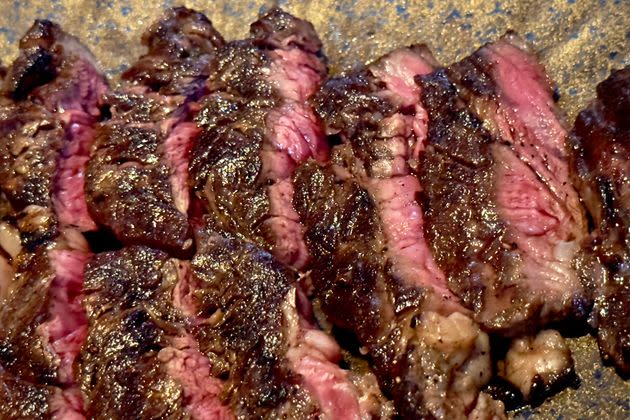Limiting To Just This Amount Of Red Meat Per Week Can Help Improve The Climate Crisis

We all want to do our part to reduce our impact on the planet as we had towards a climate crisis, but that feels nigh-on impossible while billionaires are still using private jets regularly and our political leaders don’t seem to be prioritising environmental issues enough.
However, there is one thing that most of us can control and that’s our meat intake. According to Greenpeace, if we want to avoid major environmental collapse, there’s a limit to how much meat we should be eating as a society.
Of course, cutting out meat isn’t possible or desired by most people but even reducing our meat intake, especially our red and processed meat intake can make a huge difference.
In fact, one 2022 study in the American Journal of Clinical Nutrition found that swapping out beef for a single meal can reduce a person’s carbon footprint for that day by almost half.
How to cut down on red meat
According to research published in medical journal The Lancet, by 2050 each person should be eating no more than 300g of meat per week. That’s equivalent to three chicken breasts or a very large steak.
If you’re looking to cut down, Harvard University recommends adding more “variety” to your plate where you’d usually have meat. This can come in the form of legumes, seeds, and wholegrains such as bulgur and quinoa.
There are also lots of plant-based chefs on social media, such as Gaz Oakley who has 230k followers and creates delicious meals such as mushroom kebabs.
Author is introducing “Beef Days” to his family holidays
John Green, who is a trustee of Partners In Health and bestselling author, posted on his YouTube channel that his family are addressing their red meat consumption by changing their approach to eating beef entirely.
He said: “On certain agreed upon holidays, people will come together and feast, potentially eating things that on other days would be verboten, like only eating meat on saint days.”
He then announced that in his family, over the next year, they’re going to introduce “Beef Days” as their own feast days.
“Four times a year, on agreed upon dates, we will celebrate great achievements in human history on a ‘Beef Day’ — a day where we eat beef.”
He added that they’ll have two “flex days” where they will eat beef because they want to eat beef, but, other than those six days, their diet will not contain the red meat.
Green said that if they stick with this, they’ll reduce their beef consumption by around 90%.
Personally, I think I’ll be trying this myself.
Related...
Net Zero Secretary Casually Dismisses Sunak's Persistent Private Jet Use Amid Climate Concerns
Why This Iconic English Tree Is Facing Particular Pressure From Climate Change

 Yahoo News
Yahoo News 